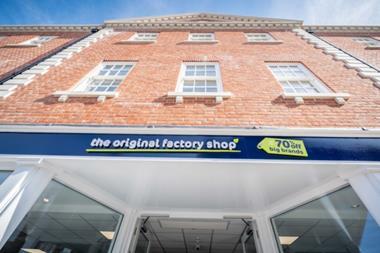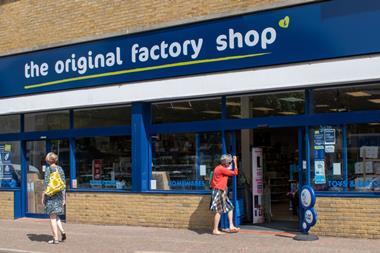With consumers changing their spending habits, what should retailers be doing to retain, or even grow, market share, asks OC&C’s James George
For retailers, the period of uncertainty feels like it is never-ending.
The industry is still recovering from the trading conditions imposed by the pandemic, while at the same time grappling with disrupted supply chains and prolonged shortages of key products.
Pressures on the consumer are also hitting the industry hard. Household incomes are being squeezed by 40-year high inflationary rates, which have now eclipsed 10% and are prompting some lower-and middle-income families to alter their spending habits to pay for spiralling grocery and utility bills.
In such a volatile landscape, it has never been more important for retailers to be aware of how consumer habits are changing, and ensure they are adapting their business to these new behaviours.
“86% of consumers say they are looking for more discounts and promotions than they were in 2021”
But there is no one-size-fits-all approach. A survey of 1,400 UK adults by OC&C Strategy Consultants found that while everyday discretionary spending is down across all sectors, some will feel the pinch more than others.
One of these sectors is electrical goods. The survey, which was conducted in July, found consumers were planning to spend 11% less on items in this category in the second half of 2022 compared to the first six months of the year, and 29% of respondents said they would decrease spending by 20% or more.
A similarly large decrease is predicted for furniture, with a 9% decrease in expected spend predicted in H2.
The data also showed the disproportionately large impact the crisis is having on lower-income groups.
Older, less affluent adults are most likely to cut their spend in the aforementioned categories, with electrical goods spend likely to reduce by 21%, and furniture by 19% by the end of the year.
How can retailers respond and emerge from these market conditions not just intact, but stronger?
More than ever, they need to know what is shaping customers’ behaviour.
A whopping 86% of consumers say they are looking for more discounts and promotions than they were in 2021, while 62% are switching to cheaper brands or products and 52% are cutting spend on luxury items.
It is difficult for retailers to reduce prices in the current environment but they need to reassure their most loyal customers that they are at least trying to soften the blow. This means pricing strategies will come to the fore, particularly with a third of consumers saying they are more likely to buy in bulk than this time last year.
“As with all periods of uncertainty, leaders will be shaped and come out stronger, but it will not happen by chance”
But this is also a time of opportunity. Nineteen per cent of respondents in our survey said they were changing their choice of retailer, while 31% are now splitting their weekly shop across multiple retailers. There is market share to be gained.
Brands should be considering how they can tap into pockets of spend that are remaining robust.
The current conditions are set to have a negligible impact on affluent families’ spend, with behaviour across the majority of categories, including electrical goods, largely unchanged. A noticeable drop by the end of the year is only likely in furniture, where a 5% reduction in spending is expected.
There are other questions retailers can be asking themselves.
Are there radical opportunities to be pursued, either in your existing industry or in pastures new? How can I position myself for the consumer of the future? How can I drive loyalty? Where can new strategic partnerships be formed? How can I turn my cost base into new revenue streams? Or can you use the time to build your internal capabilities, or perhaps invest smartly in future-proof technology?
As with all periods of uncertainty, leaders will be shaped and come out stronger, but it will not happen by chance. Thoughtful but deliberate action is needed to capture new pockets of spend, satisfy consumers and emerge as a winning retailer.
James George is a partner at OC&C Strategy Consultants
Contact George on james.george@occstrategy.com



























